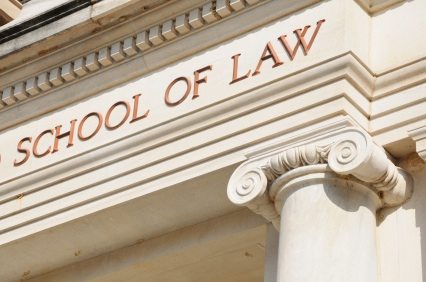Law School Brief and the Beef With LeBoeuf
 Two events within the space of seven days – one occurring in the burnished boardrooms of biglaw and the other in the august alcoves of academia – offer a cautionary lesson for all lawyers.
Two events within the space of seven days – one occurring in the burnished boardrooms of biglaw and the other in the august alcoves of academia – offer a cautionary lesson for all lawyers.
Dewey & LeBoeuf, created in 2007 in the largest law firm merger in history, is encouraging its partners to “seek out alternative opportunities.” This is legal-speak for “Get out now!” as the office walls collapse.
Meanwhile, Hastings College of Law in California announced a 20 percent cut in its enrollment. The dean said the school had been cranking out more students than available jobs.
At first glance, these news items might seem unrelated. They happened, after all, at opposite ends of the professional spectrum. Law school is a place where lawyers are made, and Dewey & LeBoeuf was a place for lawyers who had made it.
But scratch the surface and a common thread emerges: less is sometimes more.
Dewey & LaBoeuf was a legal colossus. It had worldwide offices and an international practice. It attracted superstar lawyers and clients alike. Its demise was due to a number of factors, some of which were unsurprising: a down economy, global financial uncertainty, defecting talent.
But one long-festering sore was the exorbitant compensation the firm paid its top partners. And it was not necessarily the best lawyers who got the biggest bucks, nor the ones doing the most work – it was the rainmakers, the celebrity lawyers who reeled in the juicy clients. This created growing frustration in the lower ranks of toilers who showed up every day and kept the train running on time. Eventually the whole thing blew up.
The situation at Hastings was simpler. Recently we wrote about the sharp decline in the number of students entering law school (click here). On the back end, law graduates are facing a shaky job market.
The logical solution, employed at Hastings and other institutions: dial back on incoming students.
“The critics of legal education are right,” said Frank Wu, the chancellor and dean of Hastings, in a USA Today article. “There are too many law schools and there are too many law students and we need to do something about that.”
These events teach a valuable lesson. Sometimes when we decrease one thing (salary of superstar lawyers, number of 1L students) we can increase something else (office morale, future job prospects).
Put this phenomenon to work in your firm today. Instead of trying to attract new clients, focus your energy on taking care of the ones you already have. Instead of tending to matters outside the office, look inside to make sure your employees are happy.
At first this might feel counterintuitive. We are conditioned, after all, to think that growth is good and more is better. We are told to prime the pump, push the envelope, think beyond the bun.
But sometimes we need to slow down. Or stop altogether. We need to peek inside the bun and ask, Where’s LaBoeuf?




